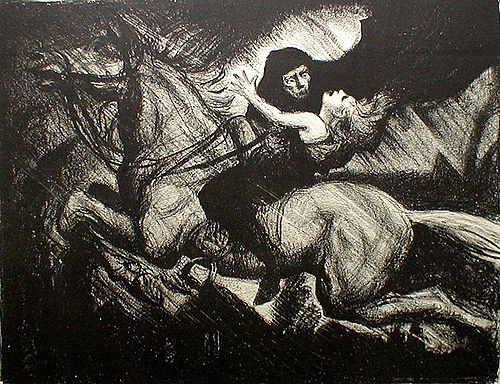Elvenoun
an upper atmospheric optical phenomenon associated with thunderstorms, rapidly expanding disk-shaped regions of luminosity, lasting less than a thousandth of a second, which occur high above energetic cloud-to-ground lightning of positive or negative polarity
Elvenoun
An old form of Elf.
Elfnoun
(Norse mythology) A luminous spirit presiding over nature and fertility and dwelling in the world of Álfheim (Elfland). Compare angel, nymph, fairy.
Elfnoun
Any from a race of mythical, supernatural beings resembling but seen as distinct from human beings. They are usually delicate-featured and skilled in magic or spellcrafting; sometimes depicted as clashing with dwarves, especially in modern fantasy literature.
Elfnoun
(fantasy) Any of the magical, typically forest-guarding races bearing some similarities to the Norse álfar (through Tolkien's Eldar).
Elfnoun
A very diminutive person; a dwarf.
Elfverb
To twist into elflocks (of hair); to mat.
Elfnoun
An imaginary supernatural being, commonly a little sprite, much like a fairy; a mythological diminutive spirit, supposed to haunt hills and wild places, and generally represented as delighting in mischievous tricks.
Elfnoun
A very diminutive person; a dwarf.
Elfverb
To entangle mischievously, as an elf might do.
Elfnoun
(folklore) fairies that are somewhat mischievous
Elfnoun
below 3 kilohertz
Elf
An elf (plural: elves) is a type of humanoid supernatural being in Germanic mythology and folklore (especially North Germanic mythology and folklore). In medieval Germanic-speaking cultures, elves generally seem to have been thought of as beings with magical powers and supernatural beauty, ambivalent towards everyday people and capable of either helping or hindering them.

















